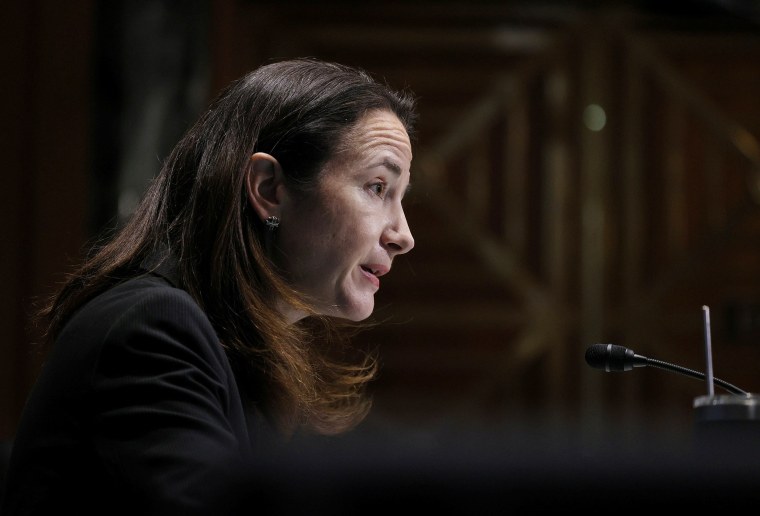Democrats were eager to see at least one member of President Joe Biden's team confirmed on Inauguration Day, and late yesterday afternoon, they succeeded.
The Senate voted 84-10 to confirm Avril Haines as director of national intelligence Wednesday, making her the first of President Joe Biden's Cabinet official to be approved by the chamber. "Avril Haines was the right choice for Director of National Intelligence. We appreciate the bipartisan cooperation to get her confirmed tonight, and we hope there will be a lot more of it because the nation is in crisis and we need President Biden's team in place as quickly as possible," Senate Majority Leader Chuck Schumer, D-N.Y., said in a statement.
As the Senate confirmation process goes, that was not a heavy lift. In fact, it's tough not to be impressed by Haines' resume: she's served as a deputy White House national security advisor; she helped lead the National Security Council; she was the deputy director of the CIA; and she even worked on the Senate Foreign Relations Committee when it was chaired by Biden.
To say she's qualified to serve as the new director of national intelligence (DNI) is to state the obvious.
She'll replace John Ratcliff, who literally failed to meet the statutory qualifications for the job. Indeed, as regular readers know, when Ratcliffe was a member of Congress, he was seen as one of Capitol Hill's most far-right members, who dabbled in silly conspiracy theories. When Trump first nominated him to serve as the director of national intelligence, the Texas Republican was effectively a punch-line to an unfortunate joke.
Senate Republicans confirmed him anyway, and he proved to be a predictable disaster. In a recent New York Times op-ed, John Sipher, a former CIA station chief, wrote, "It's quite an accomplishment, but in only five months, the director of national intelligence, John Ratcliffe, has already put himself in the running to be considered among the most destructive intelligence officials in U.S. history."
Ben Rhodes, a deputy national security adviser in the Obama White House, added, "It doesn't get enough attention that the Director of National Intelligence is a partisan hack who is constantly showed to be lying on behalf of Trump. It's incredibly destabilizing that there is no person who can speak credibly on behalf of US intelligence."
With this in mind, it's worth noting the roll-call votes for Ratcliffe's confirmation from eight months ago, and Haines' confirmation yesterday. Not surprisingly, the former was divided closely along partisan lines, while the latter was not.
But pay particular attention to the 10 Senate Republicans who voted against Haines' nomination for no particular reason: Marsha Blackburn of Tennessee, Joni Ernst of Iowa, Mike Lee of Utah, Roger Marshall of Kansas, Rand Paul of Kentucky, James Risch of Idaho, Bill Hagerty of Tennessee, Josh Hawley of Missouri, Ted Cruz of Texas, and Mike Braun of Indiana.
It's likely that for these GOP senators, the vote was largely a partisan reflex: a Democratic White House chose Avril Haines, so these far-right members saw it as their job to say no.
But I'm especially interested in Blackburn, Braun, Cruz, Ernst, Hawley, Lee, Paul, and Risch because they voted against Haines after having voted to confirm Ratcliffe. In other words, they had no problem putting a hilariously unqualified congressman in a position to oversee U.S. intelligence agencies, but they balked at an obviously qualified Democratic nominee for the same position.
That's bonkers, but just as importantly, it's likely a sign of things to come as other qualified nominees reach the Senate floor in the coming weeks and months.

